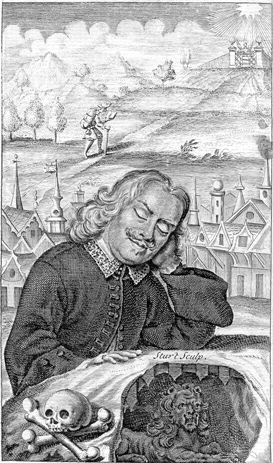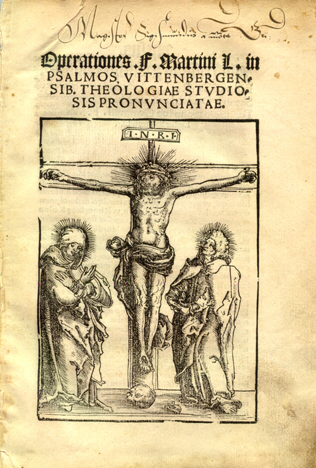 When President Charles Blanchard died from a heart attack at age 77 in 1925, Dr. John Wallace Welsh, pastor of College Church, college trustee and occasional instructor, was called to serve as acting president ad interim. Blanchard’s successor was originally intended to be W.H. Griffith-Thomas, the Reformed Episcopal author, Keswick Conference preacher and co-founder (with Lewis Sperry Chafer) of Dallas Theological Seminary. The plan was that Griffith-Thomas, when asked to join the teaching staff in 1923, would eventually assume the presidency; but the eminent theologian declined the offer.
When President Charles Blanchard died from a heart attack at age 77 in 1925, Dr. John Wallace Welsh, pastor of College Church, college trustee and occasional instructor, was called to serve as acting president ad interim. Blanchard’s successor was originally intended to be W.H. Griffith-Thomas, the Reformed Episcopal author, Keswick Conference preacher and co-founder (with Lewis Sperry Chafer) of Dallas Theological Seminary. The plan was that Griffith-Thomas, when asked to join the teaching staff in 1923, would eventually assume the presidency; but the eminent theologian declined the offer.
Before coming to Wheaton, Welsh, a native of Elmira, N.Y., pastored in Princeton, IL, at the church once led by abolitionist Owen Lovejoy, an original trustee of Wheaton College. During his Princeton years, Welsh enjoyed close association with evangelist Billy Sunday, who preached a sweeping revival from Welsh’s church. The 1927 Tower describes Welsh as “…resourceful, self-reliant, aggressive, unceasing…” He had two sons: John, Jr, who became the college’s first physician, and Evan, who also served as pastor of College Church (1933-46), and later as chaplain for Wheaton College Alumni Relations. John W. Welsh served faithfully during uncertain days until a young evangelist named J. Oliver Buswell was unanimously elected as Wheaton’s third president in 1926. Shortly thereafter Welsh retired from College Church and moved west to do field work for the Los Angeles Bible School. He received an honorary degree in 1925 from Wheaton College. Welsh died in 1947 at age 73 in Newton, Kansas, following a stroke. In addition to his sons, Welsh was survived by his wife, Mary.


 Leanne Payne’s autobiography, Heaven’s Calling: A Memoir of One Soul’s Steep Ascent (2008), unfolds the ever-rolling road of an extraordinarily rich and adventurous faith-life, moving gracefully from her childhood to her years as a student at Wheaton College, and finally to her role as author and founder of
Leanne Payne’s autobiography, Heaven’s Calling: A Memoir of One Soul’s Steep Ascent (2008), unfolds the ever-rolling road of an extraordinarily rich and adventurous faith-life, moving gracefully from her childhood to her years as a student at Wheaton College, and finally to her role as author and founder of  Harold E. “Red” Grange is the most important figure in American football history. In 1924, playing for the University of Illinois, he scored four touchdowns in 12 minutes against Michigan. And so Grange, nicknamed “the Galloping Ghost” by Chicago sports writer Warren Brown, forever secured his reputation as a gridiron legend. Grange dazzled fans, inspired poetry, starred in films, and was the first celebrity product endorser. In 2008 he was ranked #1 on ESPN’s Top 25 Players in College Football History list. But who was the nation’s first football hero? From barnstorming tours to stadium rallies, from the White House to Hollywood, Gary Andrew Poole’s The Galloping Ghost, the first critical biography of “Red” Grange, chronicles the meteoric rise of this extraordinary athlete. Drawing on extensive research and interviews, Poole details not only Grange’s relationship with Bears manager George Halas and his later life as motivational speaker and tv sports commentator, but he also touches on the shadowy aspects of 1920s sports management, exploring the influence of Grange’s agent, the visionary but unscrupulous C.C. Pyle, known then as “Cash-and-Carry Pyle” and now as “the first Jerry Maguire.” The Galloping Ghost is an energetic, perceptive account of a star athlete who defined the finest qualities of American sportsmanship.
Harold E. “Red” Grange is the most important figure in American football history. In 1924, playing for the University of Illinois, he scored four touchdowns in 12 minutes against Michigan. And so Grange, nicknamed “the Galloping Ghost” by Chicago sports writer Warren Brown, forever secured his reputation as a gridiron legend. Grange dazzled fans, inspired poetry, starred in films, and was the first celebrity product endorser. In 2008 he was ranked #1 on ESPN’s Top 25 Players in College Football History list. But who was the nation’s first football hero? From barnstorming tours to stadium rallies, from the White House to Hollywood, Gary Andrew Poole’s The Galloping Ghost, the first critical biography of “Red” Grange, chronicles the meteoric rise of this extraordinary athlete. Drawing on extensive research and interviews, Poole details not only Grange’s relationship with Bears manager George Halas and his later life as motivational speaker and tv sports commentator, but he also touches on the shadowy aspects of 1920s sports management, exploring the influence of Grange’s agent, the visionary but unscrupulous C.C. Pyle, known then as “Cash-and-Carry Pyle” and now as “the first Jerry Maguire.” The Galloping Ghost is an energetic, perceptive account of a star athlete who defined the finest qualities of American sportsmanship.
